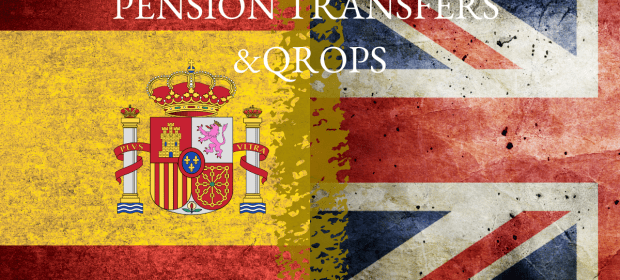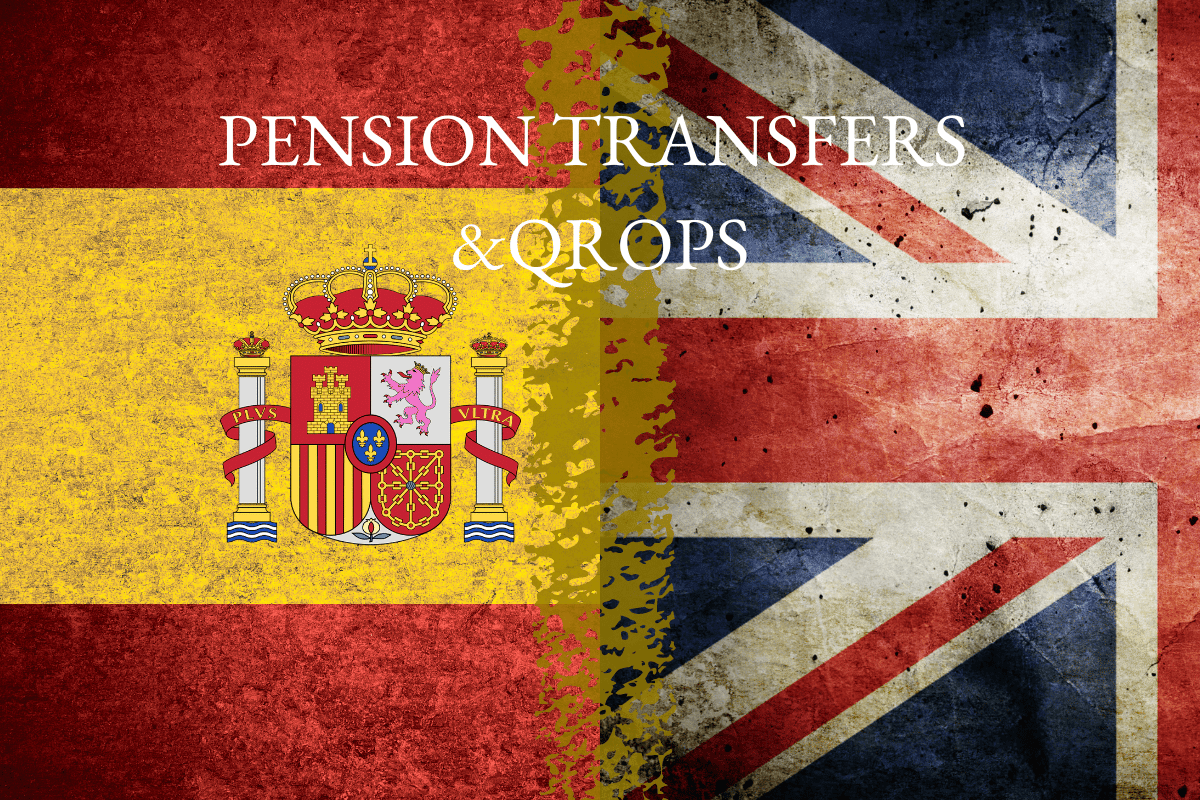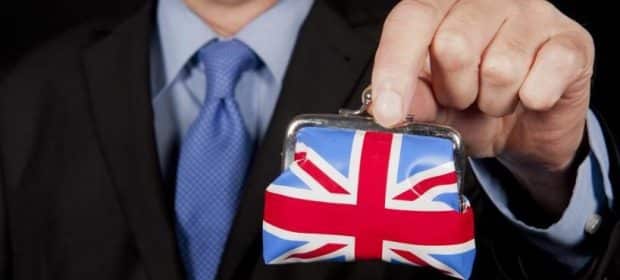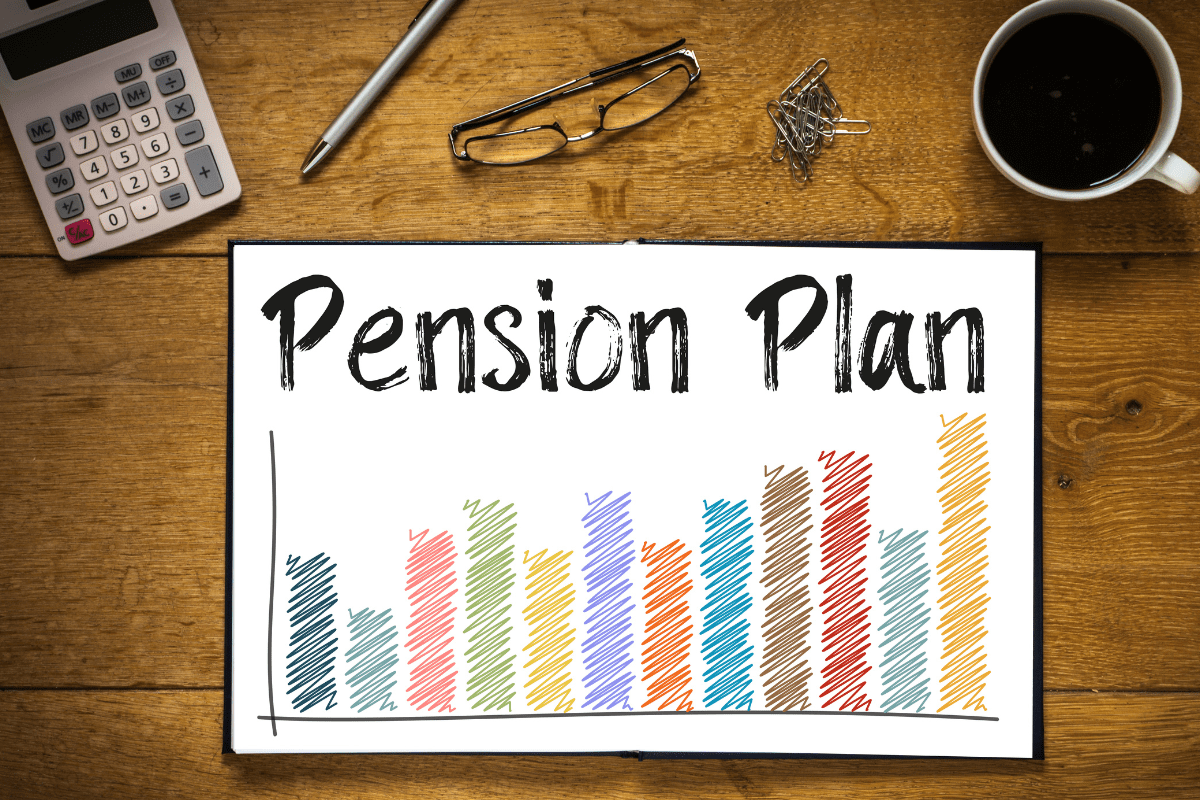Retirement options
One of the big differences when you move to Spain are the options available to you for retirement planning. In the UK/Ireland we have ISAs and private/employer pension schemes which both offer good tax savings.
By Chris Burke
This article is published on: 8th February 2023

One of the big differences when you move to Spain are the options available to you for retirement planning. In the UK/Ireland we have ISAs and private/employer pension schemes which both offer good tax savings.
ISAs are not tax free in Spain, and the annual ‘private pension allowance’ is only €1,500 per year per person! In some employer contribution schemes you can save up to €10,000 per year, but these are very uncommon. Compare that to £40,000 per year in the UK, or in Ireland up to €115,000 per person, per year! €1,500 per year is never going to achieve any serious amount of income for retirement.
The main reason for this is that in Spain, culturally people preferred to set up a company structure or accrue properties, passing these from generation to generation. Additionally, there is a lack of incentives from the authorities to entice people to save into retirement schemes.
Pensions have been popular for retirement in the UK/Ireland because of the tax savings and potential employer contributions. Take both of those away and they are not nearly as effective, which is what happens when you move to Spain. So, what can you do if you want to plan for retirement in a tax efficient manner?

For me, retirement is not just about a pension, it’s about a retirement plan. We help clients build that retirement strategy, taking into consideration the amount of income they want, making sure their assets are highly tax efficient (such as moving them away from future income tax positions) and then making sure everything is flexible and portable, because you never know what will happen in life. This is all done by using our client planning portal, where we work together to bring this to life using the following process:
This is all done by planning, where we work together to bring this to life using the following process:
We never know exactly what’s going to happen, but one thing is for sure, with proper informed planning and regular analysis, you will be much better prepared.
By David Hattersley
This article is published on: 17th October 2022

A sense of deja-vu is now apparent as the UK is experiencing a similar situation compared to the 70’s. Drawing comparisons especially for those that lived through that era would be unhelpful. However a minor point worth considering were the restrictions on the flow of capital out of the UK. For those lucky enough to travel abroad then a limit of £25.00 cash per person was the restricted limit under the Exchange Control Act 1947. My wife still has her old passport with form PP/A dated 14.02.73. One of her clients of 100 years still remembers how difficult it was to bring money into Spain to buy a plot of land.
For those that already are living in Europe or plan to in the very near future under the golden visa rules, I am not suggesting a wholesale restriction of capital movement . A difference though between the 70’s and now is the growth in personal wealth, with the primary asset being property. The 2nd biggest asset and perhaps underrated was the growth of money purchase pensions after Mrs Thatcher came to power and for those in their 50’s & 60’s this could be quite considerable. The opportunity to “ distance work “ may have an impact on younger professionals and for those relocating here.
The current government is under extreme pressure, especially the need to raise tax revenue to balance the books, along with the alleged reports of threats to tear up all agreements with Europe.One politically “safe option” and unlikely to cause uproar and outrage by the general public would be to curtail or even stop transfers to a QROP for those lucky to live or move to Europe.

Why would the government do this ? The payment of a pension held in the UK could be taxed at source as are the current Civil Service Pensions, thereby retaining the long-term tax revenue stream. It would mean filing tax returns both in the UK & Spain. The pension commencement lump sum could also come under review. There certainly wouldn’t be a public outcry for those “ lucky” enough to have sizeable pension pots.
The UK Budget Bill normally has to be debated and passed into law which takes about 3 months. In 2015 negative amendments were made to the QROPs rules that took effect immediately on the day after the budget and was quietly “slipped in”. A case of “ the devils always in the detail”! After all the principle of if one can get away with it once, why not try to repeat a similar process again?
There are many advantages in transferring to a QROPs and at The Spectrum IFA Group we offer and recommend a thorough assessment and report of your individual situation by our qualified specialist at no cost to you. An additional benefit is the long-term service provided as UK based advisers can no longer provide this for residents in Spain and the individual can retain control via a local adviser. A transfer to a QROP doesn’t only apply to UK nationals but any European worker that has built up a “pension pot”. I have been heavily involved in the pensions market since 1987 and have a wealth of experience in this field so if you have any concerns or interest please contact me to arrange a no-obligation initial meeting.
e.mail : david.hattersley@spectrum-ifa.com
Telephone or Whats App : 0034 711 051 938
By David Hattersley
This article is published on: 31st August 2022

A sense of deja-vu is now apparent as the UK is experiencing a similar situation compared to the 70’s. Drawing comparisons especially for those that lived through that era would be unhelpful. However a minor point worth considering were the restrictions on the flow of capital out of the UK. For those lucky enough to travel abroad then a limit of £25.00 cash per person was the restricted limit under the Exchange Control Act 1947. My wife still has her old passport with form PP/A dated 14.02.73. One of her clients of 100 years still remembers how difficult it was to bring money into Spain to buy a plot of land.
For those that already are living in Europe or plan to in the very near future under the golden visa rules, I am not suggesting a wholesale restriction of capital movement . A difference though between the 70’s and now is the growth in personal wealth, with the primary asset being property.
The 2nd biggest asset and perhaps underrated was the growth of money purchase pensions after Mrs Thatcher came to power and for those in their 50’s & 60’s this could be quite considerable. The opportunity to “ distance work “ may have an impact on younger professionals and for those relocating here.
The current government is under extreme pressure, especially the need to raise tax revenue to balance the books, along with the alleged reports of threats to tear up all agreements with Europe.
One politically “safe option” and unlikely to cause uproar and outrage by the general public would be to curtail or even stop transfers to a QROP for those lucky to live or move to Europe.
Why would the government do this ? The payment of a pension held in the UK could be taxed at source as are the current Civil Service Pensions, thereby retaining the long-term tax revenue stream. It would mean filing tax returns both in the UK & Spain. The pension commencement lump sum could also come under review. There certainly wouldn’t be a public outcry for those “ lucky” enough to have sizeable pension pots.

The UK Budget Bill normally has to be debated and passed into law which takes about 3 months. In 2015 negative amendments were made to the QROPs rules that took effect immediately on the day after the budget and was quietly “slipped in”. A case of “ the devils always in the detail”! After all the principle of if one can get away with it once, why not try to repeat a similar process again?
There are many advantages in transferring to a QROPs and at The Spectrum IFA Group we offer and recommend a thorough assessment and report of your individual situation by our qualified specialist at no cost to you. An additional benefit is the long-term service provided as UK based advisers can no longer provide this for residents in Spain and the individual can retain control via a local adviser. A transfer to a QROP doesn’t only apply to UK nationals but any European worker that has built up a “pension pot”.I have been heavily involved in the pensions market since 1987 and have a wealth of experience in this field so if you have any concerns or interest please contact me to arrange a no-obligation initial meeting.
By Charles Hutchinson
This article is published on: 19th May 2022

Over the last few years, there have been some well-known IFAs here in Spain advising their clients that they can save up to 88% on their income tax in Spain by stating that their pensions are temporary annuities. In some cases, this has caused serious problems for pensioners. There is no way the Hacienda would offer such benefits unless these annuities were such from outset. It would seem logical if this was to be set up as such from outset, the schemes would have to be domiciled here in Spain for the tax reasons I go on to explain. Similarly, the annuity status could not be applied to foreign pension schemes being exported by expatriates from their previous country of residence when they come to live here.
For example, I have come across clients who have transferred their pension abroad under QROPS rules, they then instruct their trustees to pay them a set income for, say, 5 years. In some cases, the trustees would give them a certificate confirming that this income is a temporary annuity. Ironically this not only potentially makes the trustees as culpable as the pensioner but so too the gestor or accountant drawing up that tax return.
An annuity is something you buy from a financial institution (usually a life assurance company) for a certain sum. In return, the company will pay you an income for life or a fixed period. Once purchased, that money is no longer yours and it is irreversible.
However, the money in a pension scheme (although legally owned by the trustees) is for your benefit in your lifetime and can be passed to your beneficiaries or spouse, depending on the scheme T & Cs. The income can be stopped, restarted, raised, lowered, or even taken in lump sums (again depending on the scheme particulars). The capital remains at your disposal. Therefore it cannot be regarded in any way as an annuity, let alone a temporary one.

Those who promote these “loopholes” are tapping into one’s natural desire to lower one’s taxes. They are exploiting genuine tax benefits offered to those who have already paid income tax on their savings with which they purchase an annuity for a fixed period. The special low tax rates which go with these annuities are by way of partial compensation for having your tax-paid capital repaid to you. Whereas pension income is always taxed at your marginal rate, mainly because there is tax relief on monies you put into your pension scheme, with both money purchase and occupational pensions. Furthermore, pension “pots” are invested and will attract, if properly invested, investment growth.
Those companies who advise people to do this and those who file a tax return claiming their pension is an annuity (when it clearly is not) are committing tax fraud. And there are very heavy fines for doing such a thing. A tax audit can go back up to 5 years and the tax shortfalls can involve sizeable sums especially when the fines are included. At pension age, this can be very distressing and a very nasty shock to an elderly person.
Spectrum can help you avoid this situation by reviewing any previous advice given and offering an unbiased opinion. We research our products and taxation thoroughly before advising our clients. If you have any doubts about your pension and the advice you have already received, then please contact me for an initial meeting which carries no fee. We want you to have peace of mind so that you can tell others about us. Spectrum is not in the risk business but very much here to protect your wealth.
By Michael Doyle
This article is published on: 4th March 2021

Are you planning on retiring in France or Luxembourg but have a pension in the UK?
Look no further than this article as we guide you through your options. Pensions are a pinnacle part of your retirement plan but can be a complex topic for British expatriates with rules frequently changing, so always consult with your financial adviser when deciding which plan best suits your needs.
First off, you can leave your pension as is in your existing UK pension scheme if you want. However, with the Brexit decision, you should check with your UK financial adviser and make sure they can still support you. If you want to move your funds to an international pension plan, then your best options may be opening a QROPS or SIPP account.
QROPS (Qualified Recognized Overseas Pension Scheme) allows foreign nationals who have worked in Britain to transfer their UK pensions overseas.
SIPP (International Self-Invested Personal Pension) enables someone access to greater investment choices because it is a personal pension plan based on making your own decisions. However, the pension structure is based in the UK so it’s subject to any legislative changes made by the UK government.
Benefits include, but are not limited to:
You can also try a combination between both UK and international pension plans. The main objective is to arrange your retirement in a manner where you can access your finances when you want, where you want, and in the currency of your choice. Overall, there are many things to consider when choosing your pension plan, so be sure to do your research and understand your different options before making any decisions.
It is in your best interest to act now when planning your pension scheme, so touch base with your financial adviser today to discuss your options.
By Andrea Glover
This article is published on: 1st February 2021

UK State Pensions
Andrea commented, “The withdrawal of the UK from the EU has obviously been an area of concern regarding UK State pensions. Now the Withdrawal Agreement has come into force, it is reassuring that those covered by the agreement will continue to benefit from aggregation of periods worked in the UK and EU, and those not yet retired will have the same benefits as current claimants.”
Tony went on to say, “UK State Pensions will be uprated every year whilst residing in France. This will happen even if you start claiming your pension after 1 January 2021, as long as you meet qualifying conditions.”
UK Properties
Many people coming to live in France often decide not to sell their UK home, instead renting the property out to supplement their pension income. Tony explained, “We are frequently asked if this is sensible as a form of investment. Whilst there is often an emotional tie to a former home, or perhaps a client wants to keep the option of returning to their UK home, there can be punitive tax consequences to such a decision, should they then decide to sell the property as a French tax resident.”
Tony continued, “The sale of a UK property has to be declared in both the UK and France. Although under the UK/France double tax treaty you receive a credit in France for any UK tax paid, French residents can also pay social charges on gains arising on the disposal of a UK property. There are also new rules effective from April 2020 in the UK, making such a decision even less attractive.”
Andrea summarised by saying “It really is important to speak to a Financial Adviser, particularly if you haven’t yet made the final move to France. Dependent on personal circumstances, it may be more beneficial to sell their property and invest in a more tax efficient investment vehicle such as an Assurance Vie.”

Qualifying Recognised Overseas Pension Schemes (QROPS)
Tony told us that many of their clients have taken advantage of a
QROPS, which enables consolidation of UK pension policies and which has attractive tax and inheritance tax advantages for French tax residents. QROPS can also offer multi-currency flexibility.
Andrea commented, “Many clients currently considering moving their pensions are querying if there are to be any changes in QROPS legislation, in view of Brexit. Our stance on this is that we believe it is highly likely that the UK Government will, after the transition period, impose a 25% tax charge on future transfers to a QROPS, making them less desirable. So, although they may not be suitable for everyone, don’t risk leaving it too late or you may face the 25% charge.”
By Philip Oxley
This article is published on: 12th October 2020

For British Nationals living in France, perhaps the primary decision to be made in relation to long term financial planning is whether or not to take any action with regards to any pension scheme/s they have in the UK.
To deal at the outset with one question I have seen asked, and increasingly so since the Brexit decision, it is important to state that it is not necessary to move your pension if you move to France. Even after Brexit, you will still have access to your pension funds. Concern that you will lose access to your pension fund is not a good reason to move it!
However, there can be good reasons to consider moving your pension once you have relocated to France. This decision should be made only on the basis of a proper analysis having been conducted on your existing schemes.
As a French resident, the primary options in relation to your pension scheme/s are as follows:
i) Leave them where they are
ii) Move them into a QROPS
iii) Move them into an International SIPP
iv) A combination of the above
Click on the sections below to find out more:
Following a professional review, sometimes our recommendation is to leave your pensions schemes in their existing arrangement in the UK. Reasons for doing this include the following:
One key drawback to this approach is that you will forever receive your pension in GBP, therefore always be subject to exchange rate risk and currency exchange costs. You only have to speak to someone who already receives their pension in GBP (or even read some of the posts on Facebook on this issue) to see that British Nationals have really felt exchange rate pain in recent years, only receiving €1.10 currently for each £ when once it was closer to €1.40. In addition, there is the time spent researching and using currency exchanges to try to obtain the best rate.
For example, drawing a pension of £10,000 per year and converting to Euro would have yielded approximately the following amounts over the past 15 years:
These fluctuations are not helpful in your later years when you need to plan your financial affairs and seek a degree of certainty in relation to your income.
A QROPS has been the go-to product for many expats over the years. To be classified as a QROPS the scheme must meet certain requirements, as defined by Her Majesty’s Revenue & Customs (HMRC). Amongst the key benefits are the following:
One disadvantage of some QROPS is the level of fees. Because of the structure of a QROPS requiring an offshore investment platform, EU based trustee (typically Malta-based) and sometimes a Discretionary Fund Manager (DFM), costs can in some cases become prohibitive. However, regardless of pension value, there is scope to control both initial and ongoing charges. With proper planning, cost should not be an obstacle to establishing a QROPS.
A SIPP has some of the advantages of a QROPS in relation to currency flexibility and consolidation, but because it remains a pension structure domiciled in the UK, the tax advantages in relation to the LTA and Death Benefits for heirs do not apply. Also, it remains exposed to any legislative changes made by the UK Government in future budgets.
However, if you plan to move back to the UK or prefer to keep your pension based in the UK, then this is an option that may be suitable.
What I mean by this, is that if you have a good, well-funded Defined Benefit (final salary) scheme and also one or more Defined Contribution (money purchase) pensions schemes, you have the option to move one or more into another structure (e.g. QROPS or International SIPP) and leave some of the schemes in place. For example, you may want to keep the security of a guaranteed pension that a Defined Benefit scheme provides but move your other DC pension schemes into a QROPS or SIPP and secure the benefits that ensue from these structures.
In deciding whether to go ahead and transfer your existing pensions into a different structure, typically the bar should be set at a higher level for a Defined Benefit (final salary) scheme. This type of pension provides a guaranteed income for life, offers some protection from inflation and the risk of funding your retirement does not rest with you (i.e. you are protected from the ups and downs of the stock market).
However, these schemes do lack flexibility and by exchanging the guaranteed annual income from retirement age, you receive instead a cash lump sum (and transfer values have seldom been higher than now) which you can invest and spend how you like with access from age 55 and the ability to pass the full amount onto your beneficiaries (tax-free if you die under the age of 75 and also the potential to be tax-free over the age of 75 if your pension is a QROPS).
Most Defined Benefit schemes only pay half of your pre-commutated pension to your spouse should you die, and usually a minimal amount or nothing to your children if you no longer have a spouse at the time of your death or your spouse who was a beneficiary of your pension subsequently dies. A QROPS for example allows much greater flexibility in relation to the selection of a beneficiary, allowing the funds to pass to any named beneficiary. Also Defined Benefit schemes are not entirely risk free – many are underfunded and some may be unable to meet their obligations (although the Pension Protection Fund exists to provide 90% of the guaranteed income if the scheme becomes insolvent before you reach retirement age, although there are maximum limits of compensation, i.e. £37,315 at age 65. The full amount would be paid if the scheme became insolvent if you were over the scheme retirement age).
a) Defined Benefit (or Final Salary)
• Provides guaranteed pension as a proportion of final salary based on i) salary ii) years of service iii) accrual rate (e.g. 1/60th of final salary for each full year of service)
• Payable from Age 65 (if taken earlier penalties apply for each year taken before 65)
• The pension is reduced when taking a lump sum
b) Defined Contribution (or Money Purchase)
• Pension benefits depend on the size of the fund
• Significant flexibility in relation to when to take the pension (currently from Age 55), how much to take and structure used to take the pension (annuity, capped and flexi-access drawdown, UFPLS, Scheme etc.)
• The pension fund size will depend on how and where it has been invested and the performance of those funds
This is a complex area and it is difficult to cover all relevant details within the parameters of this article. There are other considerations I have not addressed here, and this piece should be considered a high-level overview of some of the factors to consider. Perhaps the best advice I can give is the following:
A final point to consider is that there is currently a 25% tax applied to pension transfers into a QROPS for British Nationals living outside the EEA. After 31 December 2020, it is possible that this tax will also apply to those living in the EEA (as the UK will no longer be an EU country and the transition period will have expired). This has not yet been confirmed by the UK government but the opportunity to consider a QROPS as a financial planning option may not exist beyond the end of this year. If this is an option you want to explore, I recommend you do this without delay.
By Chris Webb
This article is published on: 18th March 2020

This is one of the most common questions I hear as a Financial Adviser in Madrid, Spain.
The answer to that question differs from person to person and the numbers I discuss with my clients vary massively. To some, having a quiet retirement with little requirements is the goal; others will want to continue playing golf and attend social events weekly. There is a huge difference in what you will need in your pocket with these different scenarios.
So, what do the experts think?
Researchers have calculated how much money a person needs per year in order to enjoy a comfortable retirement. The numbers were calculated by Loughborough’s Centre for Research in Social Policy (CRSP), The Pensions & Lifetime Savings Association (PLSA) and Retirement Living Standards (RLS). A report from Loughborough University and the Pensions and Lifetime Savings Association aims to help people understand how much they will need for a minimum, moderate or comfortable quality of life once they retire.
In the UK a full state pension comes in at just over £8,500, but it’s the other savings you accrue over your working life that will make the difference in people’s post-work years.
Experts found that a single person will need about £10,200 a year to achieve the minimum living standard, £20,200 a year for moderate living standards and £33,000 a year for comfortable living standards. For couples, the minimum standard came in at £15,700, moderate was £29,100 and comfortable worked out as £47,500. The results are based on consultations with members of the public and consider what is needed in retirement for home DIY and maintenance, household and personal goods, holidays, food, transport, clothing and social engagements.
The new Retirement Living Standards describe three different standards of living with associated costs for each – all established by what the public considers realistic and relevant expectations. Associated costs are made up of household bills, food and drink, transport, holidays and leisure, clothing and personal and helping others. The standards cover a range of goods and services that are relevant to most people. These and other costs, such as tax on pension income, may need to be added depending on individual circumstances.
A series of profiles and infographics have been created on the PLSA website to help people calculate their own finances. The research for the Retirement Living Standards was adapted from the approach used to produce the Minimum Income Standard – a calculation of what the public thinks is an acceptable minimum standard of living. The data was gathered through 26 group discussions with around 250 members of the public already retired or approaching retirement, from a wide range of backgrounds. Expert views were taken into account for some areas, such as transport, energy usage and food costs.
The discussions set the parameters for how higher living standards should be described and defined. Through these discussions, three retirement living standards were agreed: minimum, moderate and comfortable.
The standards:
At a cost of £10,200 per year for a single person and £15,700 for a couple, the minimum lifestyle covers all your needs plus enough for some fun – including social participation and social occasions.
The moderate lifestyle (£20,200 a year for singles and £29,100 for couples) provides, in addition to the minimum lifestyle, more financial security and more flexibility.
At the comfortable level (£33,000 a year for singles and £47,500 for couples), retirees could enjoy some luxuries like regular beauty treatments, theatre trips and three weeks in Europe a year.

*Table from https://www.retirementlivingstandards.org.uk/
Breaking down the RLS:
House: Household utility bills, decorating and maintenance, furniture, cleaning supplies, lightbulbs, cooking utensils, appliances (e.g. fridge, washing machine), garden supplies, towels, bedding, gardener/cleaner/window cleaner & funeral plan.
Food and Drink: Household food shopping, eating out, beer & wine.
Transport: Car running costs, railcard/train travel & taxis.
Holidays and Leisure: TV, DVD player, laptop, printer, speakers, CDs, stationery supplies, TV license and subscriptions, internet, activities & holidays.
Clothing and Personal: Clothing, footwear, cosmetics, toothbrush, toothpaste, shaving supplies, hair styling, beauty treatments, dentist, opticians, podiatry & minor first aid supplies.
Helping Others: Gifts, helping others (if applicable) & charitable donations
Planning early is key to getting your retirement plans in order. You can look up another of my articles here on this subject titled “It Is Never Too Early”
Don’t delay your financial plans. For planning, yesterday is better than today, which is better than tomorrow. Contact me, Chris webb on 639 118 185 or chris.webb@spectrum-ifa.com if you want to discuss your own circumstances.
Sources:
Loughborough’s Centre for Research in Social Policy (CRSP).
Pensions and Lifetime Savings Association (PLSA)
Retirement Living Standards (RLS)
By Katriona Murray-Platon
This article is published on: 11th March 2020
On 31st January 2020, the UK left the EU. However, the real effects of Brexit, for those of us living in France, will not properly be felt until after the 31st December 2020 (what an interesting New Year’s Eve that will be!) and thereafter. Hopefully, by that time we will have a clearer idea of what our rights and responsibilities are. Until then there will still be much speculation and media noise, which may be just as confusing as it has been over the past four years.
One thing Brexit has established, from the very beginning, is that British citizens living in France, or planning to settle in France, need to get their affairs in order and decide where they would like to live for the foreseeable future. As British citizens we can always return to the UK if we so choose, but if we want to continue to live in France we must show that we have lived here continuously for the last five years or that we intend to continue living here in future.
The next few months are going to be very interesting and it is more than ever important for British citizens to consider some important financial changes.
Pensions after Brexit
In 2006, the UK introduced a law making it possible for UK private pension benefits to be transferred to a Qualifying Recognised Overseas Pension Scheme (QROPS), provided that the overseas scheme meets certain qualifying conditions.
For those pensions that can be transferred there are many benefits including:
In 2017 the UK government announced its intention to introduce a new 25% Overseas Transfer Charge (OTC) on QROPS transfers taking place on or after 9th March 2017. This charge does not, however, apply where the QROPS is in the European Union (EU) or EEA and the member is also resident in an EU or EEA country (not necessarily the same EU or EEA country) and remains EU or EEA resident for the next five full UK tax years.
Many of those who work in the industry believe that after the transition period, it may no longer be possible for British citizens to transfer their pensions into an EU QROPS without incurring the 25% charge.
QROPS may not be suitable for everyone and much will depend upon the nature of the UK pension benefits being considered for transfer, as well as the person’s attitude to investment risk. Transferring a pension to a QROPS is not a decision that should be taken lightly nor in haste and proper financial advice with an experienced adviser is essential. Even when the decision has been made to transfer the pension it may take a good few months to complete, which is why, if you are even considering this possibility, it is important to contact a local adviser to explore what your options are.
Taxes after Brexit
As tax between the UK and France is determined by the Double Tax Treaty, this will not be affected by the fact that the UK has left the EU. However, whilst not directly taxed, a lot of UK income, such as UK rental income, is added to the taxable base and increases the tax margin of the French taxpayer. If you intend to live in France, you may want to consider whether it is really in your interest to hold onto UK assets.
It is possible to protect your capital investments in France and ensure that they can grow in a tax efficient environment by way of an Assurance Vie policy. French Assurance Vies or French approved foreign Assurance Vies offer valuable benefits when it comes to income tax, inheritance tax and estate planning. Foreign portfolios and bonds are not treated as Assurance Vies and any gain is subject to tax and social charges irrespective of whether this income is taken or whether it is brought into France. If you are French tax resident, you are taxable on your worldwide income in France. Proving that you are French tax resident will be an important factor for establishing the Right to Remain in France.
Being resident in France does not necessarily mean that all your assets have to be in France or have to be in euros. There are many opportunities for holding sterling based diversified portfolios in a tax efficient manner.
For anyone intending to live in France for the foreseeable future, be aware that today’s valuable financial planning opportunities are unlikely to remain beyond the short term (31st December 2020 could be an important date in this respect). Contact me, Katriona Murray, and I will be happy to arrange a meeting.